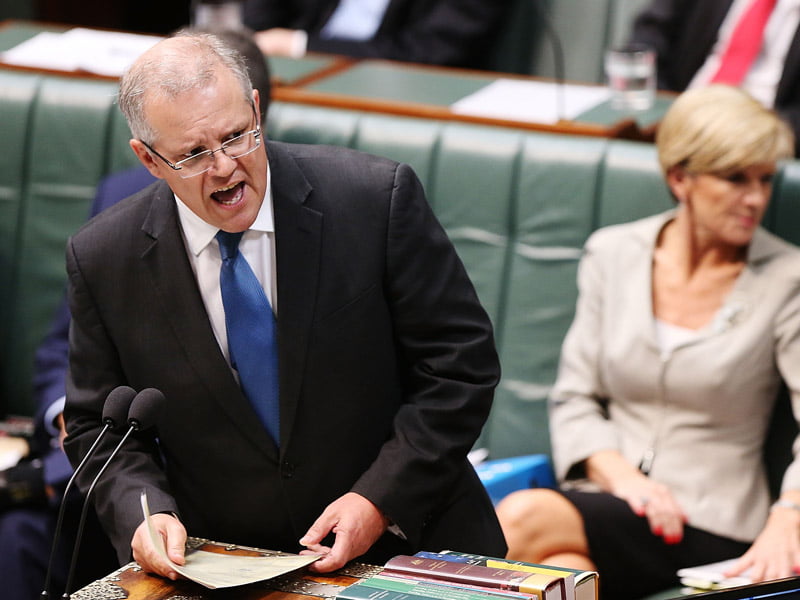As the Commonwealth Bank money laundering allegations rage and increase the likelihood of a Royal Commission inquiry into banking, there is perhaps an even more profound change in the banking regime inching towards legitimacy.
The ever-cautious Coalition government is conducting a review into open banking in Australia of which the Holy Grail is that banks – especially the Big Four – open up their APIs and let FinTechs offer all sorts of new financial products and services.
In Europe, open banking has already been mandated by the European Commission, which means we are in deep catch-up mode on the issue, and that our FinTechs could be at a great disadvantage at getting going in what will be a very long game.

The Council of the European Union has passed Payment Systems Directive 2 (PSD2) which will enable European consumers and businesses to instruct their bank to share data with other providers, and it will also allow them to instruct their bank to accept transactions on their money.
With the passage of PSD2, member states have until November this year to incorporate the directive into their national laws and regulations. PSD2 has already led to a surge in European FinTech and RegTech valuations. This is a big deal.
In Australia, our federal open banking review clicked into a slightly higher gear this week with the release of an issues paper and a call for submissions. Interested parties are invited to comment on the issues raised in the paper by 22 September 2017.
As the issues paper points out, expert support for an open banking regime here is already strong.
The 2014 Murray Inquiry (remember that?) said increased data sharing could help the development of alternative business models and products and services that would lead to consumer financial services improvements.
The 2015 Harper Review recommended government look into methods to improve punters’ access to their own data so as to advance customer choices.
And after this, the government commissioned a Productivity Commission Inquiry into Data Availability and Use, which recommended a new right for consumers to order data holders to transfer the consumer’s data in a machine-readable form to the consumer or a nominated third party.
Then the 2016 Coleman Report concluded there was a strong case for increasing consumers’ access to their banking data and recommended banks be required to provide open access to customer and small business data by July 2018.
And so, after all that inquiring, reviewing and reporting, we now have the current open banking review.
Open banking advocates such as Tyro Payment’s Jost Stollmann have been more direct.
“My view is the FinTechs and RegTechs are not going to scale up in Australia if they don’t get access to data. I have this view that there is the potential for Australia to leapfrog by going into the API economy,” Mr Stollmann told the InnovationAus.com’ RegTech Australia 2017 event in June.
At the event, Mr Stollmann called on the big four banks to “do something for the country” and just open up their APIs ahead of any more reviews.
Other advocates are more circumspect. FinTech Australia which claims to be the peak body for Australia’s FinTech industry said the issues paper helped clarify what needed to be done to actually bring on open banking in Australia.
“This paper provides further clarity about key issues that need resolution in order for us to proceed with this important and long-awaited reform to improve consumer choice and banking competition,” said FinTech Australia CEO Danielle Szetho in a statement.
FinTech Australia wants to explore a phased introduction to open banking and whatever supporting legislation is needed.
“In particular, FinTech Australia is interested in further discussing the possibility of a phased introduction of the regime to ensure its timely implementation, and we will be working closely with our members to gather their perspectives on how this might work,” said Mr Szetho.
“We are also keen to further explore the paper’s option to create banking industry-specific data legislation, rather than tying open banking reforms to a broader and more complicated whole-of-government resolution on data issues,” he said.
Local FinTech Xinja claims to be building Australia’s first fully digital banks and is keen for open banking reform.
“At Xinja we have been speaking to customers for quite some time and one of the things we hear most often is how much customers want to see all of their data in one place. They want it to be safe, secure and they want to be in control of it, said Van Le, Xinja co-founder and customer innovation director.
If major banks were to open up their APIs, Ms Le said it would lead to consumers being able to get a better handle on their spending habits.
“One of the things we would be able to do is to enable customers to see where their money is going so that they would be able to make better decisions and get better visibility of their spending and savings habits,” she said.
Do you know more? Contact James Riley via Email.

